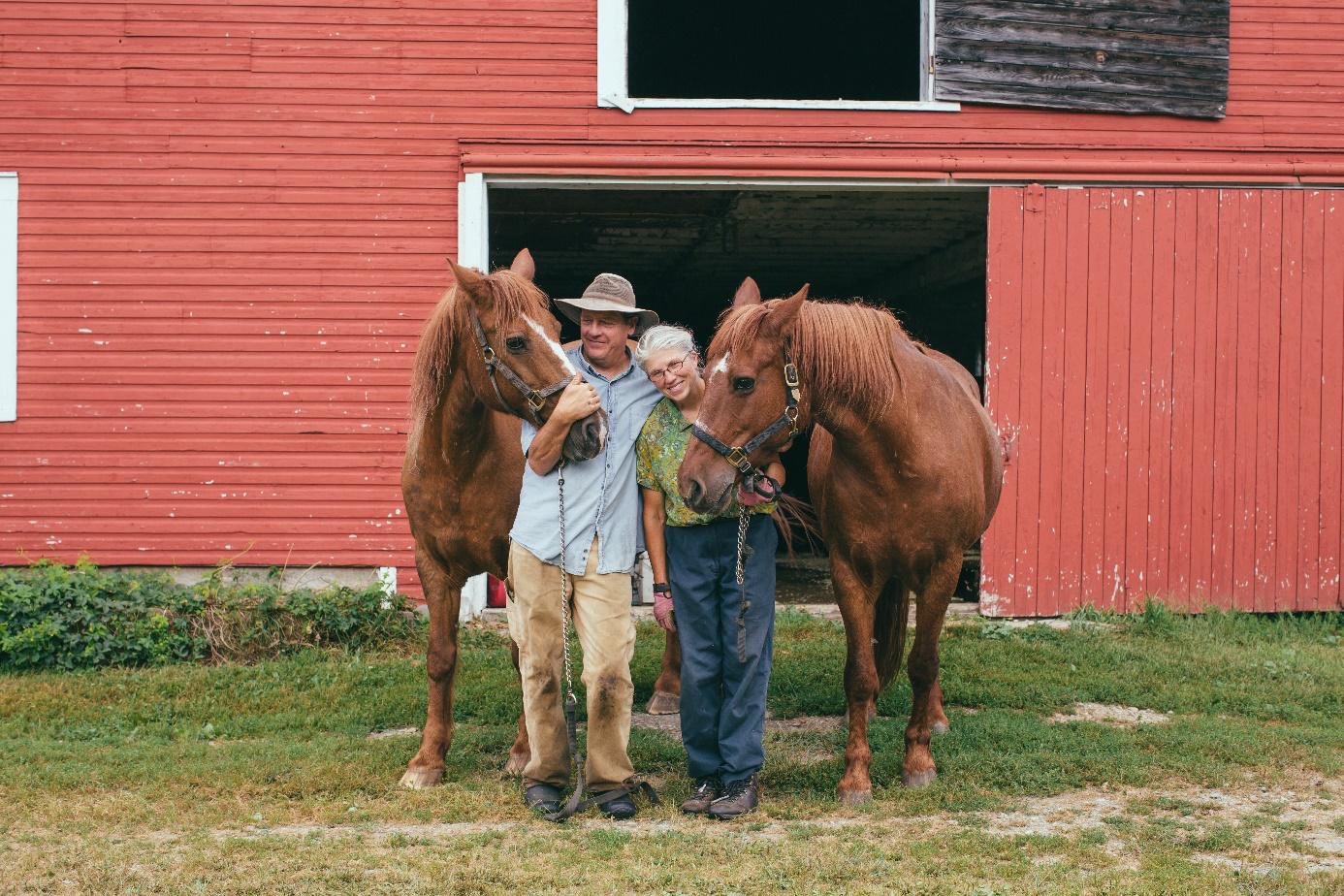A self-paced course designed for farmers and gardeners who are interested in understanding ecological approaches to “pest” management.
COURSE DESCRIPTION
“Pests” are a necessary part of a balanced ecosystem. Insects are important connectors in the complex, resilient food webs we seek to establish in our farms and gardens. Unfortunately, gross misconceptions about pests persist – and too many farmers and gardeners aim to eliminate “pests” rather than manage them for the health of the whole agricultural ecosystem.
Through structured study about insects and their control mechanisms from John and Nancy Hayden, a pair of farmers who also happen to be an entomologist and an environmental engineer, learners will shift how they think about and respond to the insects in and around cultivated landscapes. A series of interactive exercises and resources, including lectures, videos, articles, discussion forums, and case studies, provide varied ways to engage with the material and apply it in your own context. Over 18 ecology-minded modules, this course supplies learners with the mindset and know-how needed to design production systems that are resistant, resilient, robust, and regenerative. When these lessons are implemented, “pests” become largely inconsequential, and beneficial insects, dramatically reduce the need for synthetic pesticides.
Course Benefits
- Change the way you relate to the insects in and around your farm, garden or home.
- Use ecological principles and an understanding of insect biology and behavior to manage pests and encourage beneficials.
- Learn why it is important to incorporate cultural, biological, and mechanical practices on farms and in gardens to prevent pest population outbreaks.
- Explore case studies from Vermont and the Dominican Republic that are sound examples of ecological pest management and beneficial insects in action.
This course was created through and is part of :
![]()
COURSE-AT-A-GLANCE
The topical overview of the course below provides an early taste of what you can expect as you embark on your learning journey. The course has eighteen (18) modules spread across four (4) distinct exploratory areas:
Part I: Ecological Thinking
- Module 1 – Ecology and Ecosystems
- Module 2 – Current Paradigms Around Agricultural “Pests”
- Module 3 – Shortcomings of the Conventional Agriculture Mindset
- Module 4 – Creating Biodiverse Good Webs in Farm, Gardens, and Backyards
Part 2: Pest Biology and Why It’s Important
- Module 5 – Pest Life Cycle
- Module 6 – Insect Biology
- Module 7 – Plant Pathogen Biology
- Module 8 – Weed Biology
Part 3: Growing Food Without Pesticides
- Module 9 – Designing Gardens and Farms Using an Ecological Approach
- Module 10 – Soil Considerations in Pest Management Approaches
- Module 11 – Proactive Approaches Like Resistant Varieties and Trap Crops
- Module 12 – Scouting and Management Decisions Using Non-Chemical Alternatives
- Module 13 – Creating Insectaries and Beneficial Habitat on the Farm and in the Backyard
- Module 14 – Increasing Consumer Tolerance for Imperfect Produce
Part 4: Case Studies
- Module 15 – Vegetable and Greenhouse Production in Vermont
- Module 16 – Coffee in the Dominican Republic
- Module 17 – Honey Bees
- Module 18 – Fruit Tree and Berry Farm in Vermont
AUDIENCE
This course is designed for lifelong learners who believe in ecological thinking in action, and who value learning in an intentional community and independent thought. Ideally, it is for farmers, students, educators and extension agents, and horticulturists, among others.
COURSE DEVELOPERS – John and Nancy Hayden

For over thirty-five years, John has been working to design and implement agricultural systems with positive environmental and social outcomes as a researcher, extension agent, university educator, international consultant, and practicing regenerative organic farmer. He has an M.S. in Entomology with a focus on ecological pest management and has served on the Vermont State Pollinator Protection Committee and several non-profit boards.
Nancy is a writer, farmer, and artist. She has an M.S. and Ph.D. in environmental engineering, an MFA in writing, as well as bachelor’s degrees in biology/ecology, English, and studio art. She was an environmental engineering professor at the University of Vermont for over twenty years.
John and Nancy are co-authors of Farming on the Wild Side: The Evolution of a Regenerative Organic Farm and Nursery.
Disclaimer:
Course descriptions on this webpage are for informational purposes only. Content may be updated or changed as planning evolves. Sterling College reserves the right to alter the program specifics, including details about course content, instructors, collaborations, field trips, facilities and pricing, at any time without notice.
Sterling’s programming is always subject to adaptive change based on then-current events (e.g., public health emergencies, extreme weather events, service outages, etc.). We appreciate understanding and flexibility when we make adjustments designed to support community safety and care for the places in which we learn. We also thank you in advance for patience when technical snags beyond our control briefly interrupt access.

0 Comments